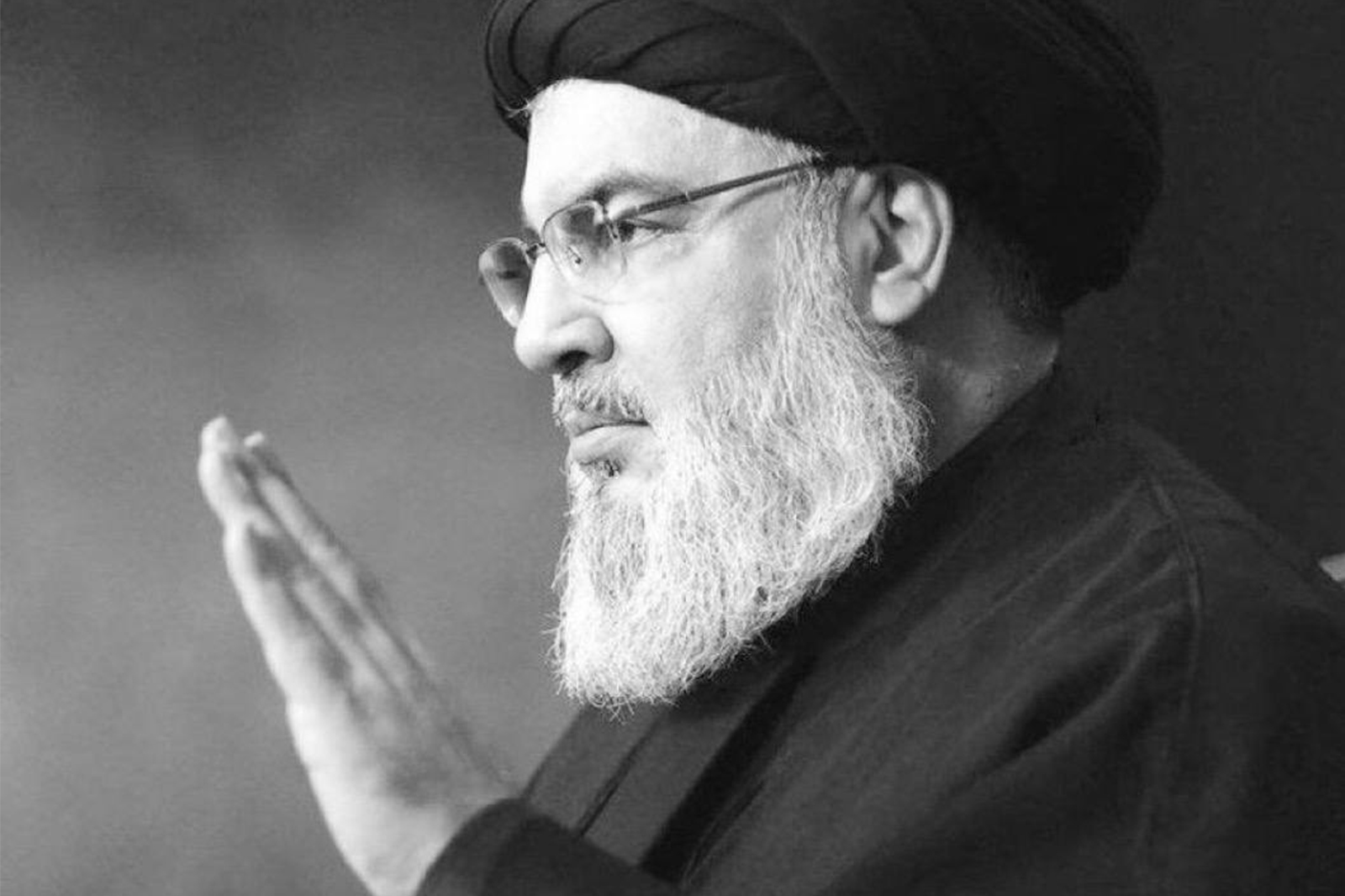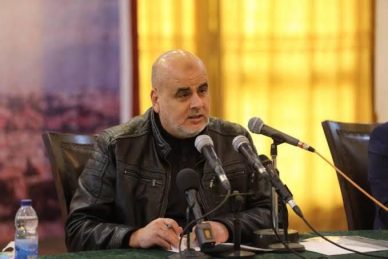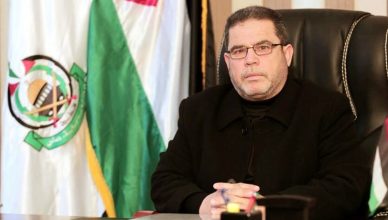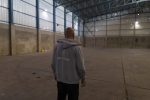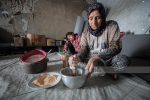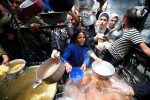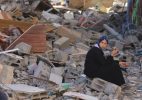BEIRUT, (PIC)
After a struggle against the Israeli occupier that lasted more than 32 years, Hezbollah Secretary-General Hassan Nasrallah passed away as a martyr, joining the ranks of the martyrs. He remained loyal to the Palestinian people in the Gaza Strip by holding firm in the battle of support from the second day of the Israeli genocidal war.
Hassan Nasrallah assumed his position on February 16, 1992, succeeding the previous Secretary-General Abbas Musawi, who was assassinated by Israel when a missile struck his convoy. He was the third Secretary-General of Hezbollah.
The master of resistance
Nasrallah received religious education in centers and seminaries in Lebanon, Iraq, and Iran, and became involved in Hezbollah, eventually leading it to significant growth and development, making it a formidable force against the Israeli occupation. He earned the title Master of Resistance for his role in leading Hezbollah after the liberation of Southern Lebanon in 2000 from Israeli occupation, which lasted for 22 years, and during the confrontation with Israel in the July 2006 war.
The late leader played a significant role in orchestrating exchanges to secure the release of Lebanese and Arab prisoners and the remains of resistance fighters held by the occupation. His passionate speeches and strong personality contributed to his popularity in the Arab and Islamic worlds, and his words received wide attention and interest.
For many years, Hassan Nasrallah was held in high esteem in the Arab and Islamic worlds, especially for the party’s role in liberating the south and in the 2006 war.
His name returned to the forefront during the Al-Aqsa Flood operation launched by the Palestinian resistance against settlements surrounding Gaza on the dawn of October 7, 2023, which was followed by a genocidal war by Israel on the Gaza Strip that lasted for months and resulted in the death of thousands of martyrs.
Nasrallah announced the opening of a front in southern Lebanon to support the Palestinian resistance, and confirmed just days before his assassination that it would not cease until the war on Gaza was ended, rejecting all compromises in this context.
Birth and early life
Hassan Abdul Karim Nasrallah was born on August 31, 1960, in the town of Bazouriyeh, near the city of Tyre in southern Lebanon. His father, Abdul Karim Nasrallah, and his mother, Nahidah Safi al-Din, had three sons and five daughters, with Hassan being the eldest.
He married Fatima Yassin and they had five children: Hadi, Zainab, Muhammad Jawad, Muhammad Mahdi, and Muhammad Ali. In 1997, the Israeli occupation army killed his eldest son Hadi during clashes in the Rafiq Mountain area of southern Lebanon. Hadi’s body remained withheld until it was recovered in 1998 as part of an exchange of 40 bodies of Lebanese martyrs and prisoners with Israel.
Education
Hassan received his primary education at the Al-Kifah private school in the Karantina neighborhood of eastern Beirut, a poor and marginalized area. He continued his secondary education at the Educational Secondary School in the Sin El Fil area. His family returned to his hometown of Bazouriyeh at the outbreak of the Lebanese Civil War in 1975, where he continued his high school education.
In 1976, at the age of 16, he enrolled in a religious seminary in Najaf, Iraq, where he began his religious studies. There, he met Abbas Musawi, who later became the Secretary-General of Hezbollah, and who supervised his education and training.
In 1978, he returned to Lebanon and joined the Imam al-Mahdi seminary in Baalbek, a religious school founded by Musawi that followed the same curriculum as the Najaf seminary. At the end of the 1980s, he traveled to Iran to continue his religious education in Qom, the second most important religious center for Shia Muslims, and returned to Lebanon a year later.
Political and organizational experience
He joined the Amal Movement during his high school years, and despite his young age, he was appointed as the organizational leader of the movement in Bazouriyeh. After returning from his studies in Iraq, he resumed his political and organizational activities within the movement, being appointed in 1979 as the political leader for the Bekaa region and a member of the political bureau.
In 1982, he withdrew from the Amal Movement along with a large group of officials due to disagreements with political leaders over how to confront the Israeli invasion of Lebanon. He then joined Hezbollah, which was founded in the same year, taking charge of the Bekaa region, with the task of mobilizing militants and establishing military cells.
In 1985, he moved to Beirut and took on the role of deputy head of the region, gradually rising through the ranks until he became the head of the city, and then the general executive responsible for implementing the decisions of the Shura Council, until he was elected Secretary-General of the party in 1992.
Leadership of Hezbollah
On February 16, 1992, the Shura Council of Hezbollah elected Hassan Nasrallah as Secretary-General of the party, succeeding Abbas Musawi, who was assassinated by Israel. Although he was not a deputy to the Secretary-General and was the youngest member of the Shura Council, he was unanimously elected to this position.
With his leadership, the party carried out significant military operations against Israel, culminating in Israel’s withdrawal from southern Lebanon in 2000 after 22 years of occupation. In 2004, Nasrallah played a key role in a prisoner exchange between the party and Israel, which was described as the largest prisoner swap between the two sides, as it not only involved the release of prisoners from Lebanon but also included hundreds of prisoners from other Arab nationalities, including Syrian, Libyan, Moroccan, and Palestinian.
His popularity surged during the July 2006 war, which lasted 33 days and resulted in significant losses for Israel, forcing it to withdraw from southern Lebanon without achieving its objectives. Through these wars and military confrontations with Israel, Hassan Nasrallah gained a substantial reputation and widespread popularity in the Arab and Islamic worlds, becoming associated with the resistance against Israel and opposition to Western influence in the Middle East.
Al-Aqsa Flood
Since the outbreak of Al-Aqsa Flood on October 7, 2023, Hezbollah engaged in the battle the following day by shelling the Shebaa Farms, which was seen as a message of solidarity with the Palestinian resistance in Gaza. The Lebanese-Palestinian border witnessed attacks from Hezbollah and Palestinian factions, while the occupation carried out aggressive airstrikes.
After weeks of military confrontations, Hassan Nasrallah appeared in his first speech on November 3, 2023, affirming that the Al-Aqsa Flood operation was a Palestinian decision and execution. He said that the front opened by Hezbollah in Lebanon was one of “support and solidarity,” emphasizing that the war was fundamentally in Gaza, noting that the front was open, developments were changing, and options were available.
In his subsequent speeches, he insisted that the escalation on the southern front would not cease until the attack on the Gaza Strip stopped. In a speech on July 17, 2024, he warned that Israel’s continued targeting of civilians would lead the resistance to target new settlements with rockets, threatening the occupation with the loss of its tanks if it entered Lebanon.
Assassination
On September 27, 2024, the Israeli occupation launched intensive airstrikes on Haret Hreik in the southern suburbs of Beirut, announcing that it had targeted what it referred to as Hezbollah’s central headquarters in the southern suburbs of Beirut, stating that the strike aimed to assassinate Secretary-General Hassan Nasrallah.
In turn, Hezbollah announced on September 28, 2024, the martyrdom of Hassan Nasrallah in the strike that targeted him. The party’s leadership pledged in a statement to “continue its jihad against the enemy, supporting Gaza and Palestine, and defending Lebanon.”

